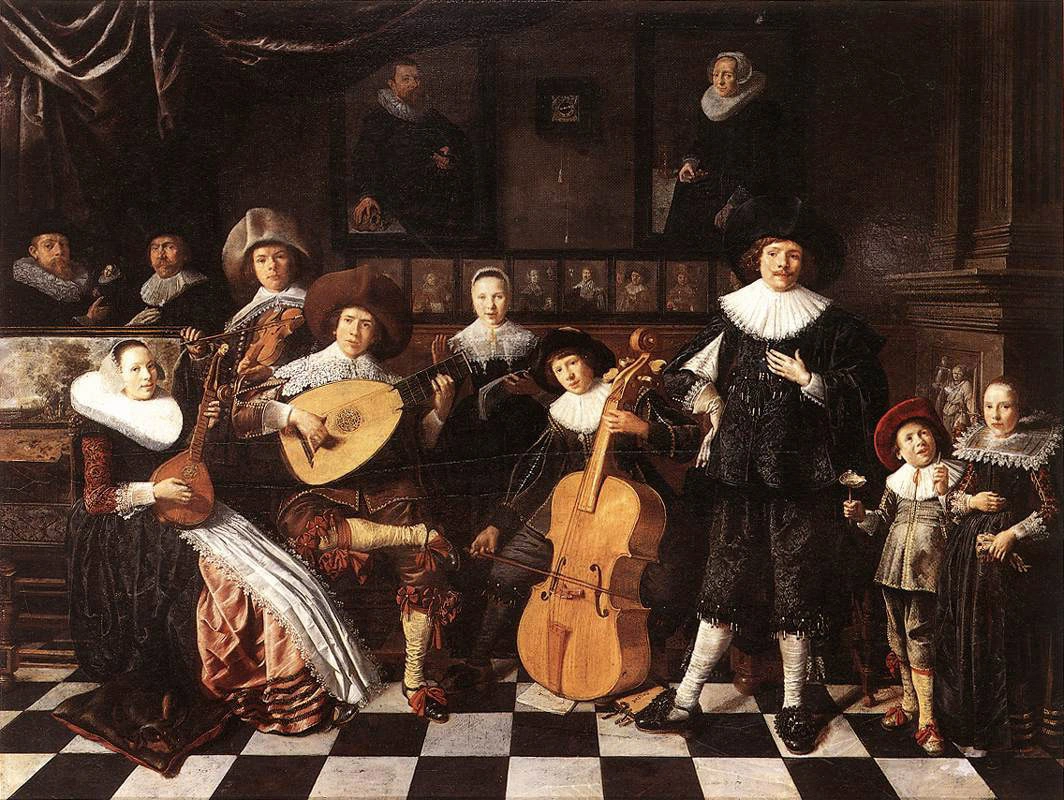Why hello there! Welcome to this blog on music, which I have started as part of an University Assignment at Canterbury. First off, I’ll be taking a look at French Baroque music.

When someone mentions Baroque music, chances are what goes through your head is the music of J.S. Bach, Vivaldi, or possibly Handel. Despite most Baroque music we recognize being written by Germans or Italians, many other parts of Europe had their own flourishing music traditions around this Baroque period, that we generaly date to 1600-1750. The term “French Baroque” is not actually a term often used by the French: they generally refer to the period between 1580/1660 to Berlioz as the “Classique” period. At the risk of being attacked by angry Frenchmen, I will for this article refer to the period as the French Baroque.
The music of the French Baroque is distinguished by many little differences in musical preference, style, ornamentation and instrumentation. These differences can be partially laid at the feet of two causes: a very individual national language, and an absolute monarchy keen on nationalisation.
Just dealing with the implications of language: the French language has many differences to its neighbours, Italian, German, Spanish, and early English, but more importantly, French has totally different grammar. As the most popular music of the time was vocal, like folk and courtly songs, the conventions of vocal music in say German or Italian would not be able to apply to songs in French. French composers developed their own style of vocal music, letting the text’s sounds shape and phrase the music freely; the most important element of the music was the text. Michel Lambert’s par mes chants is a beautiful example of what this style can accomplish: a tasteful and interesting joining of text to music, written in the melancholic serious air de cour style; air de cour, or “court songs”, were either serious (often about subjects of courtly love and the like), or drinking songs.
French church music of the time, I feel, was very beautiful. As a Catholic nation, the Mass would have been sung in Latin (or in Greek for the Kyrie), so the issue of singing in French would not have applied. Nontheless, church music in France developed a very individual flavour, partially at least to their use of organ. Although common in churches all over Christian Europe, the French used the organ by itself, not using it to support the singers. This can be seen in François Couperin’s Messe à l’usage des paoisses, a very beautiful Mass.
Couperin Messe a l’usage des paroisses
The verses alternate between solo organ and choir. The style of organ music is a mix of new (such as the fugue for verse 3) and old (a cantus firmus; a Gregorian chant ornamented and enlarged), with the player able to improvise to make the music fit to the timing of the rituals taking place. I find the cadences and harmonies in the music very pleasing to the ear. The French organ, as you might notice in the recording, sounds quite different to the organs we are used to hearing today. That reedy sound was built into the organs, and was a source of pride and individuality for French musicians.
Now to the part of French Baroque music that I’m not as fond of. Unlike most Baroque music, the French did not encourage improvisation (church music being the exception), writing out ornamentation painstakingly. Reading through the score of D’Anglebert’s arrangement of Lully’s Chaconne de Phaeton for harpsichord, I find the notation beautiful, and the preface with all the specific explanations of ornamentations beguiling and amusing in equal measures. When it comes to listening, though, I have mixed feelings; although some of the harmonies are unusual and interesting, and some of the ornamentation quite beautiful, on the whole I find the music over-ornamented and a bit contrived, lacking the sense of spontaneous energy apparent in other Baroque music. I don’t hate it, I just don’t like it as much as the vocal music further up in this post.
D’Anglebert Chaconne de Phaeton
I find the fiercly individual style of French Baroque music fascinating, not least because it feels like the political situation of the time was one of the driving forces behind coming up with this original and individualistic music. The anti-Italian musical trend in France, fostered by the Bourbon Kings (especially Louis XIV), I find quite bizzare and amusing, especially considering that Louis’ personal court composer, Lully, was originaly Italian! The amount of control the king had, from controling publishing, composing style, musical content, and musical patronage, to the establishment and privatisation of the first “modern orchestra” (called the 24 violins of the king, no less!), was truely astonishing.